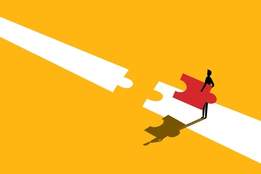Word of the Day
: July 8, 2013ephebic
playWhat It Means
: of, relating to, or characteristic of a youth of ancient Greece or a young man
ephebic in Context
"Ephebic training included athletic instruction in the events which were contested in the Olympics and in the hundreds of other athletic contests of the eastern Mediterranean." - From a post by Dr. Jason Koenig at his Ancient and Modern Olympics blog, May 31, 2013
"This Old Master didn't disport himself with mistresses or, like Leonardo and Michelangelo, with ephebic young men; most of his surviving correspondence chases unpaid bills." - From a book review by Peter Conrad in The Observer, December 2, 2012
Did You Know?
An ephebus was a youth in ancient Greece who had reached the age of puberty. The name is from the Greek word "ephēbos," from "epi-" ("upon") and "hēbē" ("youth" or "puberty"). Ephebi (the plural of "ephebus") aged 18 or 19 were at one time required to undergo two years of stringent military training, but the requirement became less compulsory and the training less rigorous and militaristic over time. The youthfulness of the ephebi inspired both the adjective "ephebic" and the noun "ephebe." The latter can mean "a young man," as illustrated by John Walsh in the Independent Extra, March 23, 2010: "When you're 40, the sight of your one-time room-mate Philip, once a skinny ephebe with golden ringlets, now transmogrified into a burly renegade with a head like a Sumo bouncer and a body to match, is frightening."
Test Your Memory
What word begins with "p" and completes this sentence from a former Word of the Day piece: "The novel's protagonist is a young accountant who has grown weary of her __________ life and longs for adventure and world travels"? The answer is …











